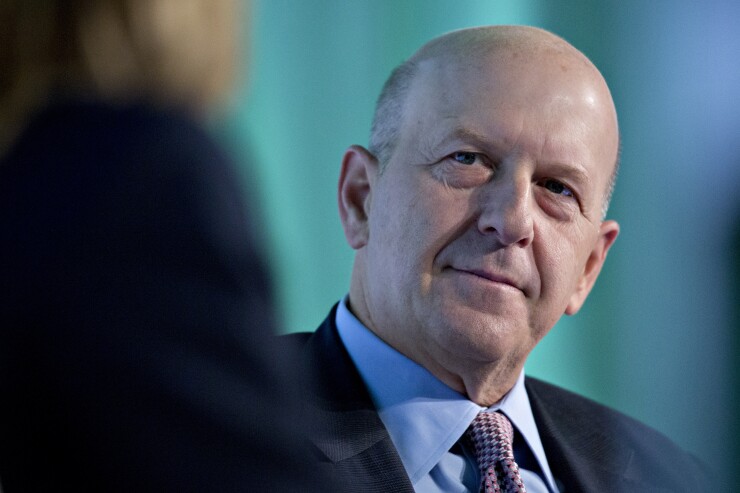Wall Street Journal
Running in place
The Federal Reserve is unlikely to raise interest rates “through at least next year, given recent inflation trends and the Fed’s shifting understanding of the economy,” the paper says. “Chairman Jerome Powell recently set
“Our forecast is that the Fed’s on hold, really, for the foreseeable future,” according to Brett Ryan, a senior U.S. economist at Deutsche Bank.
Getting too big?
“Credit unions, long seen as a humdrum corner of consumer finance, are going toe-to-toe with the biggest financial institutions. Credit unions’ assets have grown at nearly twice the pace of banks’ over the past decade, and the cooperatives are buying small banks in record numbers. They are using their newfound financial heft to compete aggressively for business," the paper says.
But “economists and analysts are uneasy about how these bulked-up credit unions will fare in a recession. In another financial crisis,
Pushing the limits
Venture capitalists in Silicon Valley are “funding a wave of fintech startups in India that are providing much-needed credit in India.” But they also use “data from borrowers’ cellphones to collect on debts in ways that are illegal in both India and the U.S.," the paper says. "While the newcomers’
“It is the latest example of Silicon Valley pushing legal and ethical boundaries in a global race for customers and profit." the paper says. "Lured by the promise of massive populations of people who are just beginning to transact online, tech companies are moving into banking in emerging markets, where cultural norms are complex, regulations are often weak, and many consumers lack credit histories or even official identification.”
For love and money
“Ambition and love” drove Andrew Pearse, a former banker at Credit Suisse, to accept $45 million from Privinvest Group, a firm owned by Lebanese billionaire Iskandar Safa, to set up $2 billion of debt deals in Mozambique that the U.S. Justice Department say involved fraud and money laundering. Jean Boustani, a Safa lieutenant accused of paying the bribes, is on trial in federal court in Brooklyn, where a verdict could come as early as Monday. Pearse is the star witness against Boustani, “who has
Across the border
The wave of money laundering allegations in Scandinavia has spread to Norway, where “police have
The Steyer plan
In
Financial Times
Providing a vision
Goldman Sachs “will try to steer investors’ attention towards its core Wall Street businesses” at its “high-stakes” investor day next month, “instead of its recent push into consumer banking, which insiders say could take a decade to meaningfully have an impact on earnings," the paper says. "Among the centerpiece announcements, Goldman is set to detail its ambition to
“Under newish boss David Solomon, the self-assurance” at Goldman “is as shaky as the share price. Goldman’s profitability is a third of [its] pre-crisis high, and the stock has stagnated since Mr. Solomon started in the job 14 months ago. So expectations are running high ahead of Goldman’s first ever investor day in January, when Mr. Solomon will seek to

Desperately seeking yield
The European Banking Authority is warning that European banks have “an
“German banks are particularly affected by negative interest rates because they hold about a third of the total excess deposits on which the ECB levies negative rates.”
Back to the future
Royal Bank of Scotland this week launched its new app-based bank Bó, while Esme, its business lending start-up, passed £100 million in loans issued. The two are part of a “string of technology-driven projects launched by former chief executive Ross McEwan in an effort to see off the threat of start-up challengers and improve efficiency at the 292-year-old lender. Although they remain tiny compared with the wider group’s £775 billion balance sheet, the latest developments highlight how RBS is hoping to turn the initiatives from interesting experiments into
Quotable
“Banks have significantly increased their riskier lending portfolios and, looking forward, they plan to keep increasing these exposures. Under a bleak economic outlook, banks should





